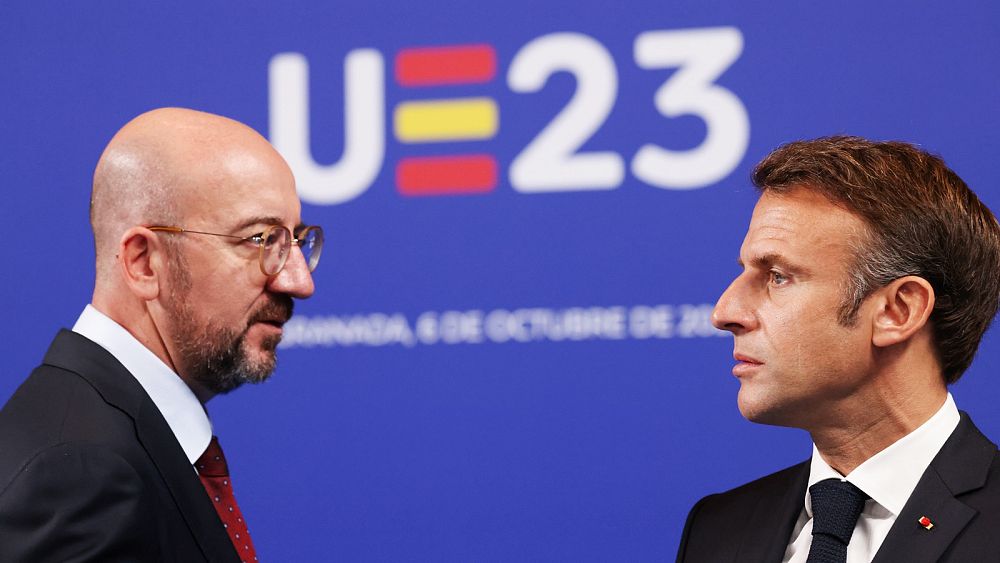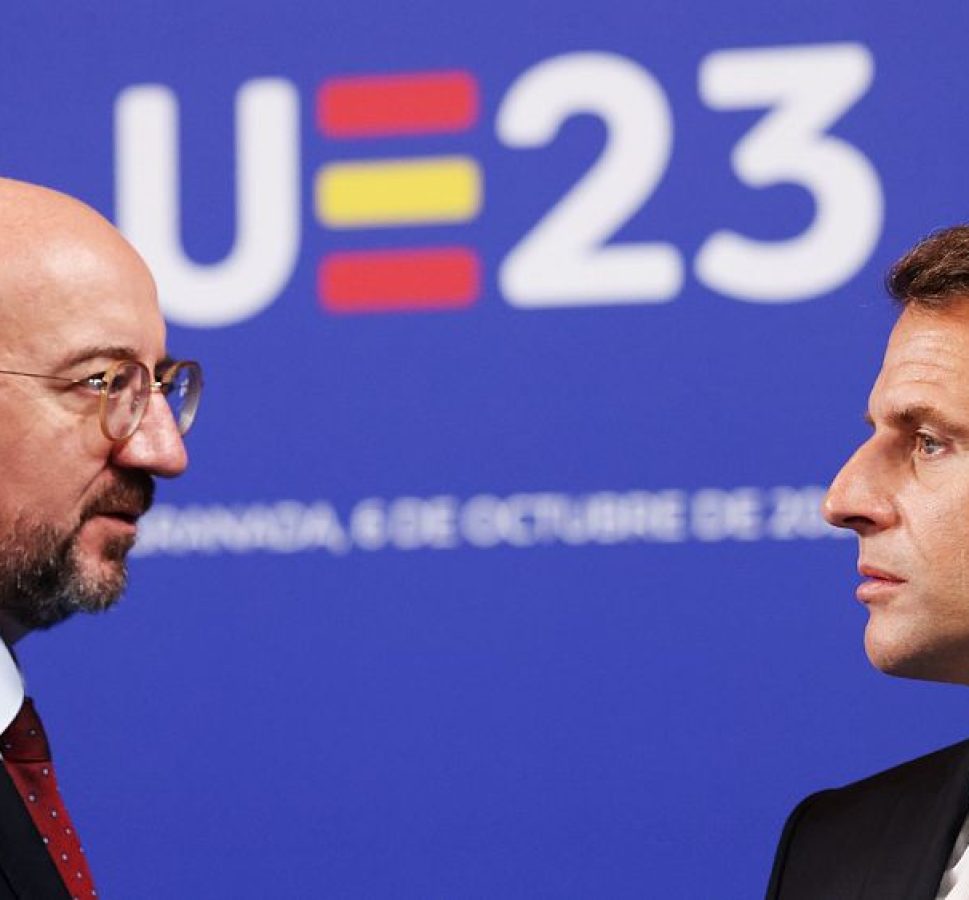
European Union leaders will meet remotely on Tuesday afternoon to discuss the latest developments of the Israel-Hamas war and set the record straight about the bloc’s joint position, with a possible call for a ceasefire.
The extraordinary meeting, convened by European Council President Charles Michel, comes after a week of uncoordinated, confusing and, at times, contradictory messages sent by high-ranking officials, both in person and on social media.
European Commission President Ursula von der Leyen, in particular, has attracted a great deal of attention following her strong messages of support for Israel and her closely followed trip to the country on Friday, during which she visited areas destroyed by Hamas and met with Prime Minister Benjamin Netanyahu.
“Israel has a right to defend itself. In fact, it has the duty to defend its people,” she said standing next to Netanyahu.
But while all capitals agree on Israel’s right to protect its sovereign territory and population, it was von der Leyen’s repeated omissions of the need to comply with international law and exercise restraint that set alarms off, as it created the impression of a one-sided stance that ignored the suffering of ordinary Palestinians.
The Commission chief only urged Israel to respect international law on Saturday, a full week after the initial Hamas attack, in a short press release that announced the tripling of humanitarian assistance for the Gaza Strip.
As criticism mounted, Charles Michel released on Sunday a statement on behalf of the 27 EU leaders that defines a common position and makes an explicit reference to “Israel’s right to defend itself in line with humanitarian and international law.”
The statement was seen as a rebuke to von der Leyen, whose working relationship with Michel has been difficult since the so-called Sofagate incident.
“We reiterate the importance of the provision of urgent humanitarian aid and stand ready to continue supporting those civilians most in need in Gaza in coordination with partners, ensuring that such assistance is not abused by terrorist organisations,” the text reads.
The virtual meeting on Tuesday is intended to be a “frank and open” discussion about the war’s implications in the short and long term, said a senior EU official with knowledge of the negotiations.
Humanitarian assistance, the release of hostages, security risks, migration movements and engagement with regional actors to prevent an escalation of violence will be among the main topics on the agenda.
The possibility of formally calling for a ceasefire will also be on the table.
“We felt the need to bring some order,” the senior EU official said on Monday, speaking on condition of anonymity. “The idea is convergence. The more leaders talk, the more they walk in the same direction.”
Asked if von der Leyen had exceeded her competences by travelling to Israel, the senior official simply said that “foreign affairs is a matter for member states.”
“I’m not questioning people’s right to travel but when expressing the position in a certain field, we should be careful,” the official added.
Meanwhile, the European Commission, facing relentless questioning from journalists, defended von der Leyen’s trip as being within her political remit.
“The President can travel wherever she wants,” said Eric Mamer, the Commission’s chief spokesperson. “She went to Israel to express solidarity with a country that had been subjected to an unprovoked terrorist attack. That is entirely in her prerogative.”
After a reporter asked if the tripling of humanitarian aid to Palestinians was a politically motivated move to “fix” von der Leyen’s image, Mamer said the decision was taken in relation to a phone call with the UN Secretary-General António Guterres on Saturday.
“To say that it is in reaction to political criticism is, in my view, despicable,” Mamer said.
The issue of humanitarian aid caused the executive a PR headache last week after it was revealed that Commissioner Olivér Várhelyi had acted on his own initiative when he announced a suspension of “all payments” to the Palestinian authorities.
Várhelyi’s surprising move was later water-downed into an “urgent review” of the development funds allocated in the last three years, worth €681 million, to ensure no money reaches Hamas, which the EU and the US consider a terrorist organisation.






